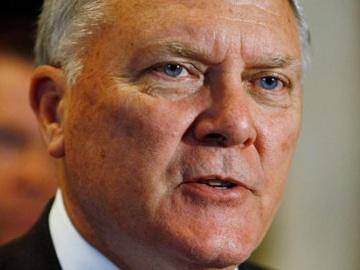
Section Branding
Header Content
Gov. Deal Chides Congress
Primary Content

With talk of a debt deal in Washington, state officials are breathing a sigh of relief. That’s because Gov. Nathan Deal says Georgia doesn’t have the cash to pick up the slack on federally-funded programs such as Medicaid.
Deal said reaching the debt ceiling limit has been his main concern during the federal government shutdown.
And he says if the limit is breached, the federal government would probably cut Medicaid reimbursement payments. And he says that would mean trouble for Georgia.
“We would not have the money to reimburse the hospitals, the doctors, the providers,” he said at a press conference at the state Capitol.
He said the state’s rainy day fund is most likely out of reach because rules govern how that money can be spent. And to override those rules would require legislative approval, he said.
Deal was in Congress during the last shutdown in 1995. He says in many ways there are few parallels. That’s because Congress had passed a budget during the shutdown. Now he says the body survives on continuing resolutions, rather than actual annual budget.
“That means they never got around to passing any appropriations bills at all – something that has become common practice in the last couple of years.,” he said.
And while lawmakers in Washington are inching toward a resolution, Deal has a suggestion for what his former colleagues should be talking about.
“It’s how much more money are we going to borrow and how long can we continue to go down that path?” Deal said.
He says the last shutdown led to a balanced budget – something he says no one is talking about now.
But while he chided Congress for He defended fellow Republicans who have held up debt limit negotiations over the Affordable Healthcare Act. He says they’re “standing on principle.”
Deal often touts the state's triple-A bond rating. He said in this case because it's well-known that the federal government is to blame for the economic stalemate, he said he's not worried about a downgrade.
Tags: Georgia, Medicaid, Washington, Nathan Deal, debt deal, federally-funded programs, state rainy day fund.
Bottom Content

